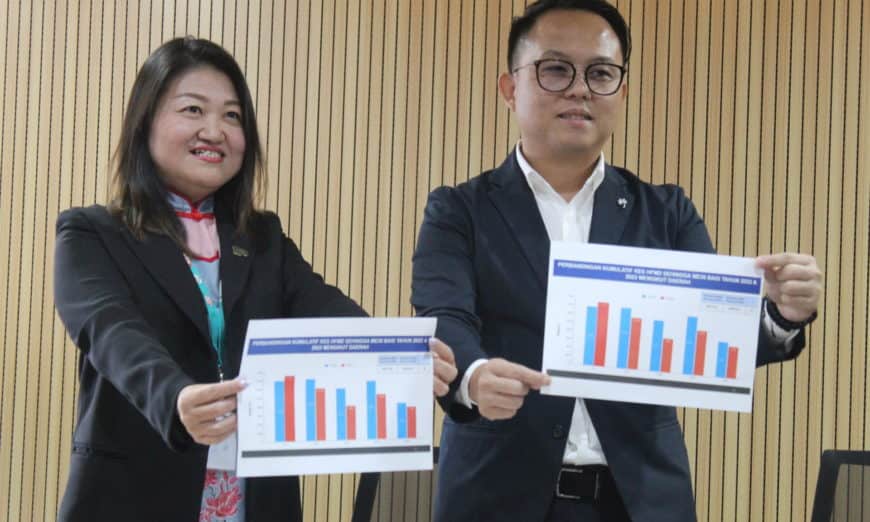PENANG has recorded a total of 5,335 cases of hand, foot and mouth disease (HFMD) as of the epidemiological week (EW) 36 this year (from Jan 1 to Sept 9), according to state Youth, Sports and Health Committee chairman Daniel Gooi Zi Sen today.
While there has been a 15% decrease in cases compared to the corresponding period last year when 6,267 cases were reported, Gooi emphasised the need for caution.
“It is important to note that there was a spike in HFMD cases during epidemiological week 21 (May 21 to 27). In fact, the Northeast district has seen an increase in cases compared to last year.
“Now, with the school reopening, we must be even more vigilant.
“Parents should quarantine their children if they show symptoms,” Gooi told a press conference at Komtar while providing an update on the state’s HFMD status.
Symptoms can include fever, mouth sores, and rashes on the hands and feet.
This year, the Northeast district has recorded the highest number of cases at 1,507, followed by Southwest with 1,214 cases, Central Seberang Perai with 1,062 cases, North Seberang Perai with 800 cases and South Seberang Perai with 752 cases. Of all the five districts, only the Northeast district showed an increase in cases compared to last year when 1,398 cases were reported.
Gooi advised the public to practise frequent hand-washing with soap and water, or hand santisers, and to refrain from bringing children with symptoms of HFMD to public places. The primary virus responsible for HFMD in Penang is Coxsackie A16.
He said the majority of the HFMD cases involve children six years and below, accounting for 4,298 cases (80%), 7 years to 12 years old with 803 cases (15%) and those aged 12 years and above with 234 cases (4.4%).
“To date, there have been no reports of HFMD cases treated in the intensive care unit (ICU) and no reports of any fatal HFMD cases,” Gooi added.
However, he urged operators of children’s centres, like nurseries, kindergartens and pre-schools, which are risk areas, to report any HFMD case to the state Health Department and take proactive measures to prevent the disease from spreading.
Lim Siew Khim, the state Social Development, Welfare and Non-Islamic Religious Affairs Committee chairman, who was also present, encouraged childcare operators to register with the state government.
She stressed the importance of having childcare centres registered so that operators can get support from government agencies in controlling diseases like HFMD.
“So far, 126 nurseries, 96 childcare centres and 287 kindergartens are registered, while 60 nurseries, 52 childcare centres and 246 kindergartens remain unregistered in Penang. We advise parents to send their children to registered centres.
“When these care centers are legal and registered, the authorities can ensure cleanliness, safety, and educational standards are followed, reducing the risk of disease transmission. We can also ensure toys and surfaces are frequently sanitised and promote a culture of hand washing among children,” Lim said.
Story by K.H. Ong
Pix by Ammar Mikhail Ammer

